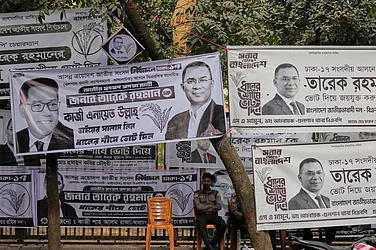In a surprising turn of events, an anti-terrorism court has refused to grant the police further physical remand of 13 women supporters, including renowned fashion designer Khadija Shah, who were linked to the attack on the historic Jinnah House. Instead, they have been sent to jail on judicial remand, marking a significant development in this high-profile case.
The women, who are associated with Imran Khan's Pakistan Tehreek-e-Insaf (PTI) party, were presented before the court at the end of their initial six-day physical remand. The Investigating Officer (IO) argued that extended custody was necessary to recover clubs and petrol bombs allegedly used during the attack on May 9. It was claimed that clubs were found in the possession of Khadija Shah, Sanam Javed, and Tayyaba Raja. However, these three women vehemently denied these allegations, refuting any association with the recovered club.
Judge Abher Gul Khan, presiding over the case, astutely noted that the IO had not previously mentioned the recovery of petrol bombs in their request for physical remand. Consequently, the court rejected the police's appeal for further physical custody, raising questions about the veracity of the claims made against the accused.
As a result of this ruling, all 13 women, including former Member of the National Assembly Alia Hamza, Maryam Mazari, Sabuhi Inam, Huma Saeed, Ayesha Masood, Maha Masood, and Khadija Nadeem, in addition to Khadija Shah, Sanam Javed, and Tayyaba Raja, have been transferred to jail on judicial remand. This decision marks a significant shift in the course of the investigation and may have wider implications for the case as it unfolds.
The attack on the Jinnah House, which also serves as the residence of the Lahore Corps Commander, occurred amidst the volatile aftermath of former Prime Minister Imran Khan's arrest from the Islamabad High Court premises. Following Khan's detention in the Al-Qadir corruption case by the National Accountability Bureau (NAB), violent protests erupted, resulting in the loss of ten lives and over 1,000 injuries. The violence was primarily instigated by PTI party supporters, who targeted various military installations and government buildings, including the Lahore Corps Commander House, Mianwali airbase, and the ISI building in Faisalabad. Shockingly, even the Army headquarters (GHQ) in Rawalpindi fell victim to the mob's fury. Imran Khan was later released on bail.
Law enforcement agencies have been diligently working to restore peace and order, and to date, over 10,000 workers affiliated with Imran Khan's PTI party have been apprehended throughout Pakistan, with 4,000 arrests taking place in Punjab province alone. The authorities are determined to bring those responsible for the violent acts to justice and maintain law and order in the country.
(WIth PTI Inputs)


























